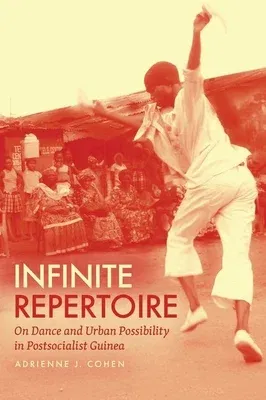In Guinea's capital city of Conakry, dance is everywhere. Most
neighborhoods boast at least one dance troupe, and members of those
troupes animate the city's major rites of passage and social events. In
Infinite Repertoire, Adrienne Cohen shows how dance became such a
prominent--even infrastructural--feature of city life in Guinea, and
tells a surprising story of the rise of creative practice under a
political regime known for its authoritarianism and violent excesses.
Guinea's socialist state, which was in power from 1958 to 1984, used
staged African dance or "ballet" strategically as a political tool, in
part by tapping into indigenous conceptualizations of artisans as
powerful figures capable of transforming the social fabric through their
manipulation of vital energy. Far from dying with the socialist
revolution, Guinean ballet continued to thrive in Conakry after economic
liberalization in the 1980s, with its connection to transformative power
retrofitted for a market economy and a rapidly expanding city. Infinite
Repertoire follows young dancers and percussionists in Conakry as they
invest in the present--using their bodies to build a creative urban
environment and to perform and redefine social norms and political
subjectivities passed down from the socialist generation before them.
Cohen's inventive ethnography weaves the political with the aesthetic,
placing dance at the center of a story about dramatic political change
and youthful resourcefulness in one of the least-studied cities on the
African continent.

